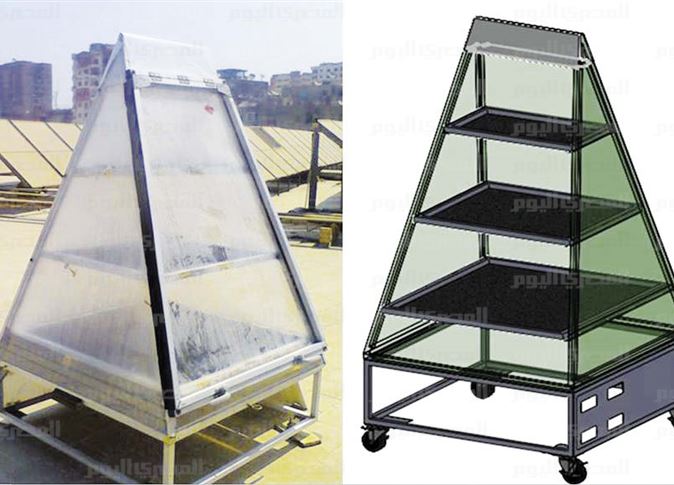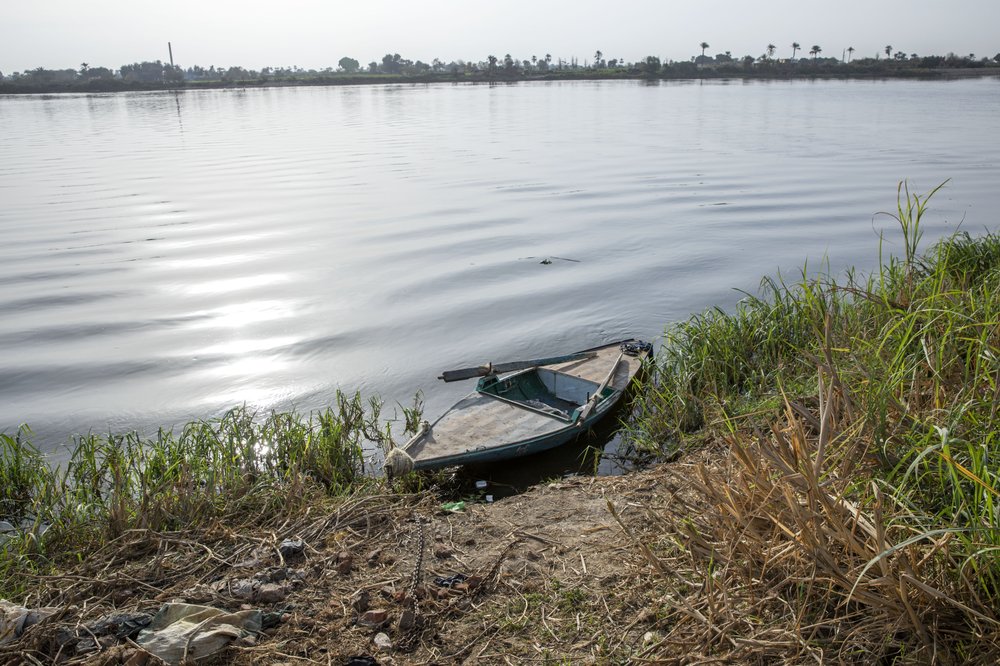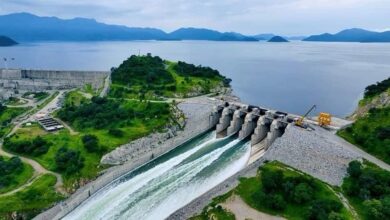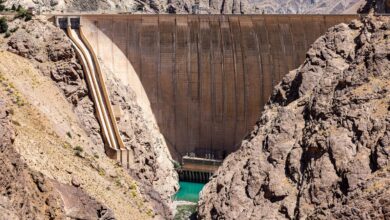
As water scarcity increasingly threatens the health and political stability of communities across the globe, a group of professors at Helwan University Faculty of Engineering say they have invented a system to absorb water from the air using solar panels.
Professors Mohamed Fattouh, Mohamed Hassan and George Elya came up with a system to generate water from humid air that can be efficiently used in remote areas at low costs. They published their research in the July 21, 2015 issue of the Renewable Energy Magazine, a leading scientific journal.
Researchers around the world are always looking for innovative solutions, such as the desalination of seawater and techniques to extract groundwater, but high costs often impede these solutions, especially in poor countries and areas distant from coasts and wells.
The device costs as little as LE500,” said Professor Hassan. “And it is easy to operate.”
Professor Fattouh says the new device works with absorbent material, such as silica gel and calcium chloride, which absorb moisture from the air at night, when temperatures are low, and leave the water to evaporate through solar energy during the day. Then the vaporized water is condensed on the sides of a solar collector, and the droplets are stored in a tank to be used when needed.
To asses the efficiency of the system, they built a pyramid with four fiber glass panels and several drawers of absorption and evaporation surfaces. Professor Hassan says results proved the efficiency of the system, as each square meter of the surface produced 2.32 liters per day, enough of the daily consumption of one person.
Professor Elya says they are working on expanding the capacity of the device to produce more water.
The Arab world is located in the most drought region of the world, with only 1 percent of the world water resources. And recently, Egypt was listed among the water poor countries, especially on the North Coast, the Red Sea zone and Sinai, with a per capita rate of less than 1,000 cubic meters per year. This rate is expected to drop even more once the Ethiopian Renaissance Dam is complete.
Edited translation from Al-Masry Al-Youm




